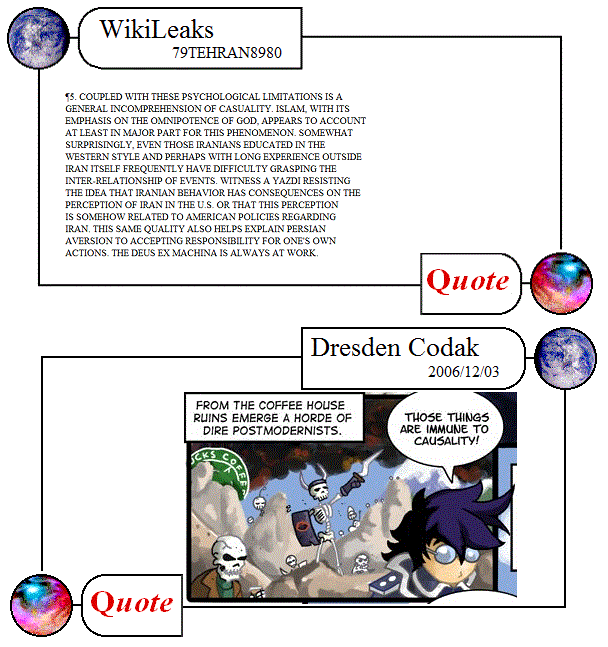Cromagnum, in response to my post on Chesterton, has posted a useful and informative comment here. It reads, in part (an excerpt from Eugenics and Other Evils follows):
The Socialist system, in a more special sense than any other, is founded not on optimism but on original sin. It proposes that the State, as the conscience of the community, should possess all primary forms of property; and that obviously on the ground that men cannot be trusted to own or barter or combine or compete without injury to themselves. Just as a State might own all the guns lest people should shoot each other, so this State would own all the gold and land lest they should cheat or rackrent or exploit each other. It seems extraordinarily simple and even obvious; and so it is. It is too obvious to be true. But while it is obvious, it seems almost incredible that anybody ever thought it optimistic.
Pundita has written a tour de force response to my post on Senator Richard Lugar: “Wikileaks plus first disbursements from 2009 US aid bill for Pakistan already under scrutiny for graft. Senator Richard Lugar please take note.”
In a wide ranging post, she makes note of three key issues:
1. Congressional oversight: If you’re having a hard time wrapping your mind around the concept that vital information would be withheld from key congressional defense/intelligence committees — which can’t make informed recommendations without such data — while thousands of low-level civilian government and military employees had access to the data, you should listen to the interview; it’s enough to make your blood boil if you’re an American.
2. Allegations of corruption in the distribution of aid monies: Two months after his remarks came the news that even the first small disbursements were already in trouble due to charges of corruption. Because aid monies disbursed to the Pakistani government become the sovereign property of the government and thus immune to oversight the 2009 aid bill aimed to get around the problem by disbursing the money to NGOs. The workaround simply opened another avenue for graft:
3. The sometimes head-scratching priorities and decision-making of American officials: Yet the revelation doesn’t fully explain why the U.S. military and executive and congressional branches have consistently made bad calls on Pakistan because this has been going on for more than a half century — ever since the U.S. first became involved with Pakistan. Yet these bad calls weren’t seen as such until NATO floundered in Afghanistan. That finally put a crimp in the style of Washington’s anti-Russia crowd but over decades the crowd and its counterpart in Europe looked the other way while Pakistan ran riot because they saw the country as a weapon first against the Soviet Union then against Russia.
No matter who wins the presidential election in 2012, I wager that many of the structural problems that have plagued our foreign policy in recent years will remain. One of the most appealing aspects of the Tea Party movement is its “pay attention!” ethos. Complain about elites all you want, they can’t cause so many problems if we citizens are performing our own oversight functions.
Update: Thanks for the link, Professor Reynolds!
There are some very good comments in the comments section. I will try and respond more fully at a later date.
